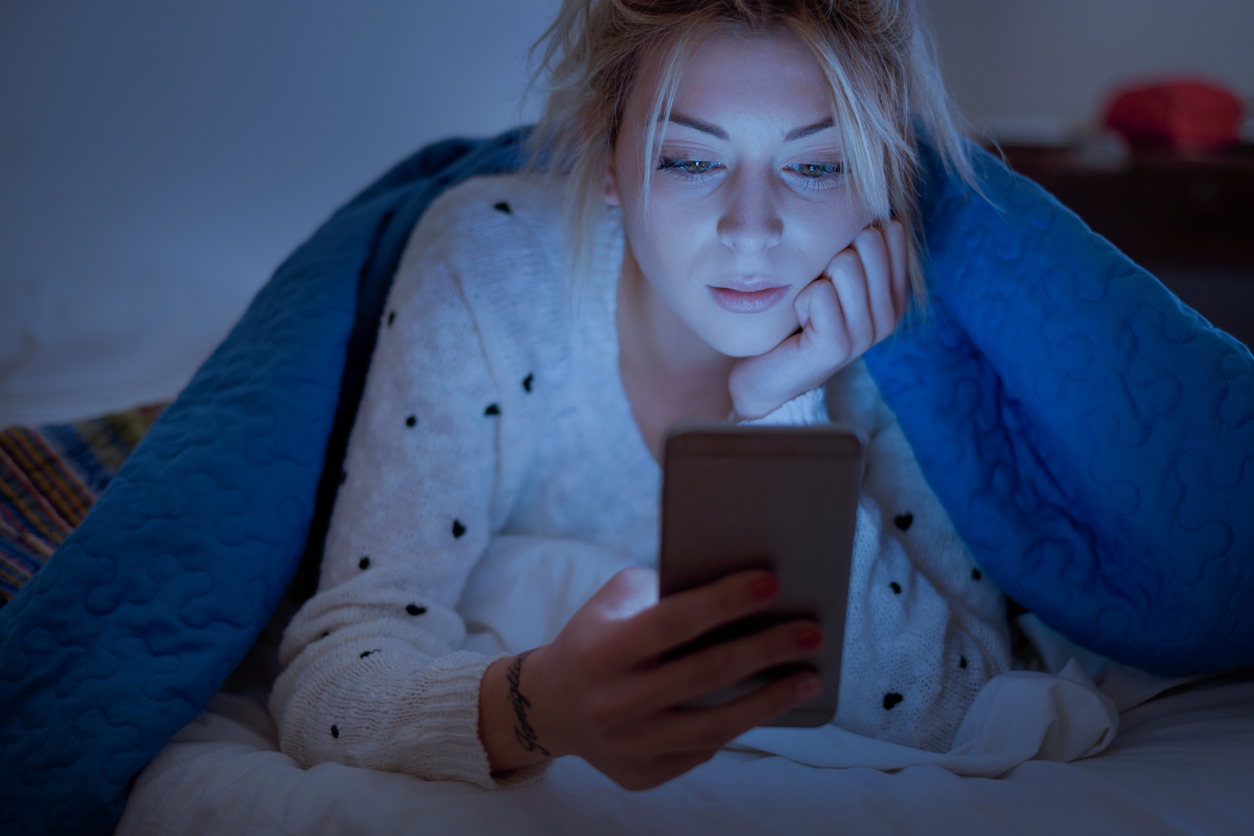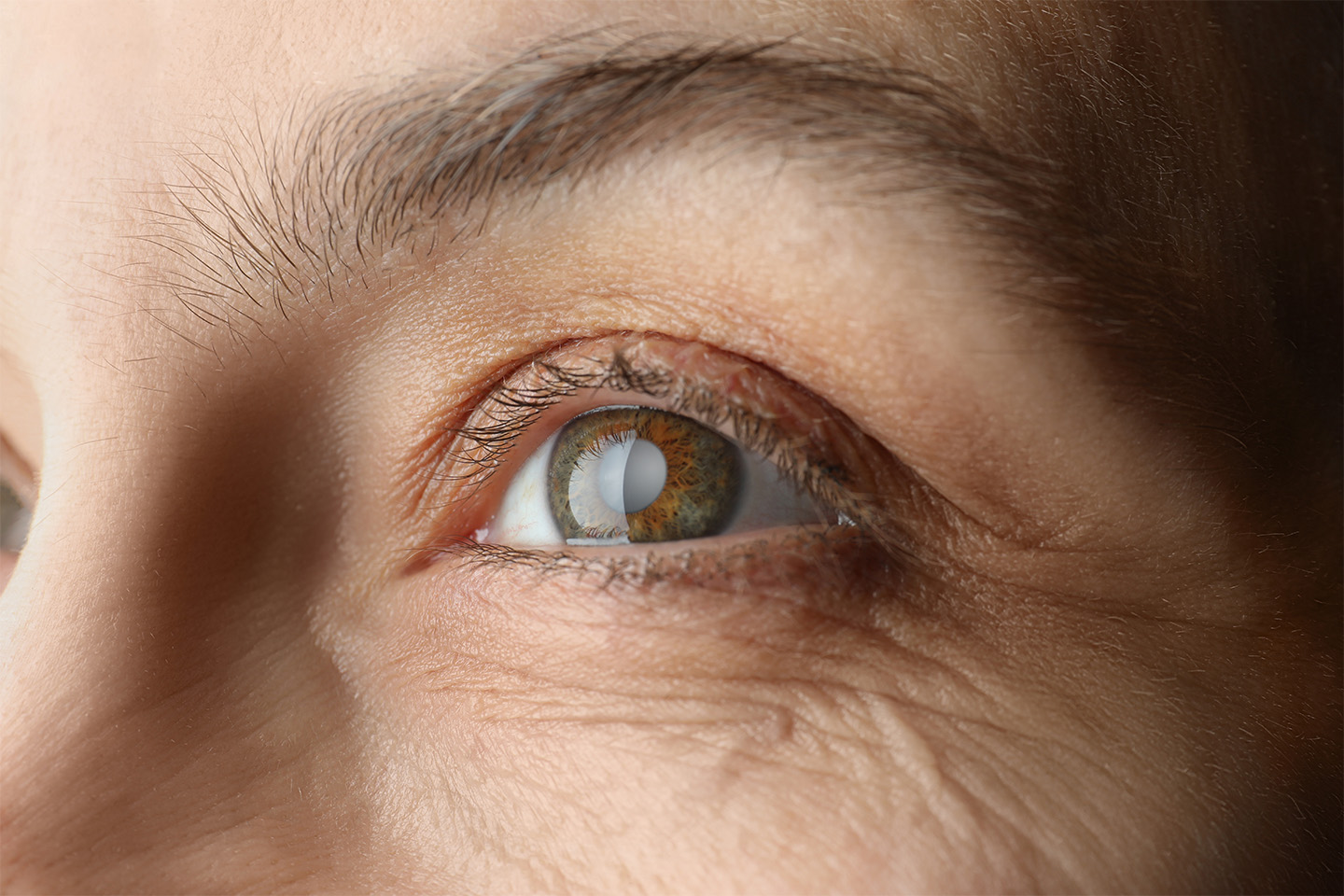Can Digital Screens Damage Your Eyes?

Long-term exposure to blue light can have negative effects on the health of your eyes. Learn more about how you can protect your vision.
As technology becomes integrated into all aspects of our lives, people are spending more and more time in front of digital screens. While these devices have many benefits, clinical studies are starting to show how increased screen time can lead to long-term damage for our eyes.
While eye fatigue and discomfort are common side effects of too much screen time, researchers are finding that the blue light emitted by digital devices can also lead to retinal damage. Here’s what you need to know about protecting your eyes.
What Is Blue Light?
Sunlight may look white, but it’s actually made up of all the different colors of the rainbow, which, when combined, appear white to our eyes. Each color has a different energy and wavelength — red and infra-red colors have longer wavelengths and less energy, while blue, indigo, violet, and ultra-violet colors have shorter wavelengths and carry more energy.
Much of white light, especially white light from digital screens, can contain a large amount of blue light. While digital screens don’t expose us to as much blue light as we get from sunlight, eye care professionals and researchers are concerned about the effects that holding phones, tablets, and laptops close to our eyes will have on our vision over the long term.
Effects of Blue Light
Blue light actually offers a number of health benefits such as boosting alertness, improving memory, and elevating mood. It also helps regulate your body’s circadian rhythm (your natural waking and sleeping cycle).
However, studies have shown that being exposed to too much blue light can have certain adverse effects, including:
- Digital eye strain. Blue light from digital screens decreases the contrast between items or objects you’re focusing on, which can lead to eye strain. Dry eyes and poor lighting can also contribute to eye strain, which usually manifests as soreness, irritation, or difficulty focusing.
- Loss of sleep. While exposure to blue light during the day helps maintain your body’s circadian rhythm, studies show that too much blue light before bed can throw off your body’s regular sleep pattern. This can lead to trouble sleeping and tiredness during the day, which is why some phones offer a Night Mode feature that reduces the amount of blue light your phone display emits.
- Retinal damage. Continued and extended exposure to blue light can actually damage the cells of the retina, which can speed the progress of vision problems like age-related macular degeneration.
How You Can Protect Your Vision
There a few ways that you can protect your eyes and decrease your exposure to blue light. These include:
- Try reducing your screen time. If your job involves working at a computer, one thing you can do is look at something 20 feet away for 20 seconds every 20 minutes to give your eyes a rest.
- Use a screen filters. Much like how sunglasses reduce the UV rays entering our eyes, screen filters reduce the amount of blue light screens emit. Filters are available for phones, tablets, and computers.
- Wear computer glasses. Like screen filters, computer glasses block out blue light by using yellow-tinted lenses. This increases contrast, making it easier on your eyes when viewing digital screens.
- Opt for anti-reflective lenses. By reducing glare and increasing contrast, these types of glasses block blue light both from digital screens and the sun.
- Consider intraocular lenses that filter out blue light. If you’re planning to have cataract surgery, talk to your surgeon about options regarding the replacement intraocular lens. Most lenses will protect your eyes from ultraviolet light, but some types of replacement lenses offer added blue light protection as well.
If you’re concerned about protecting your eyes from potential blue light damage, we’re more than happy to discuss what preventative options are available. Contact us today.
Turn To The Top Eye Doctors In Texas
Check out one of our locations below for the best eye care near you:
[DISPLAY_ULTIMATE_SOCIAL_ICONS]








